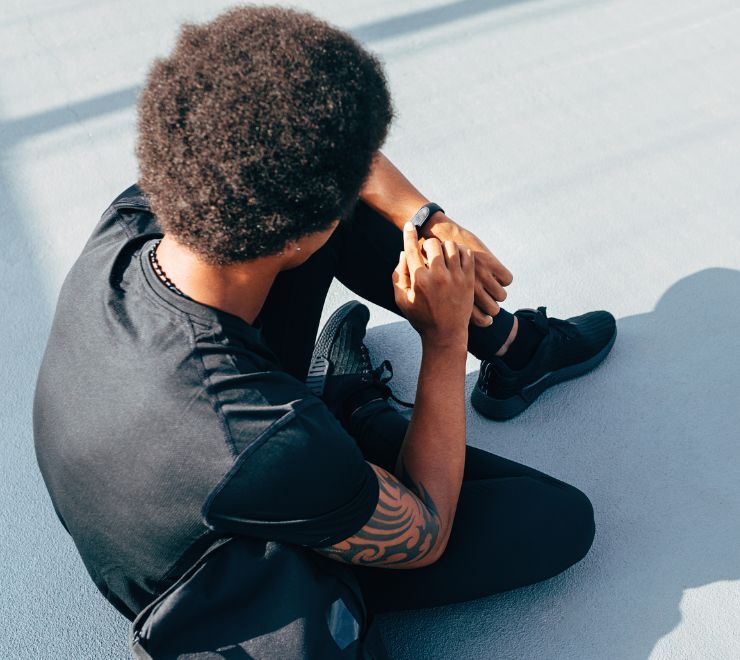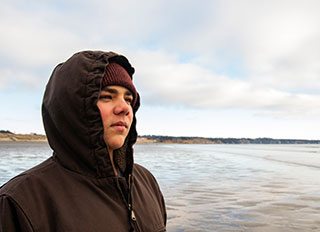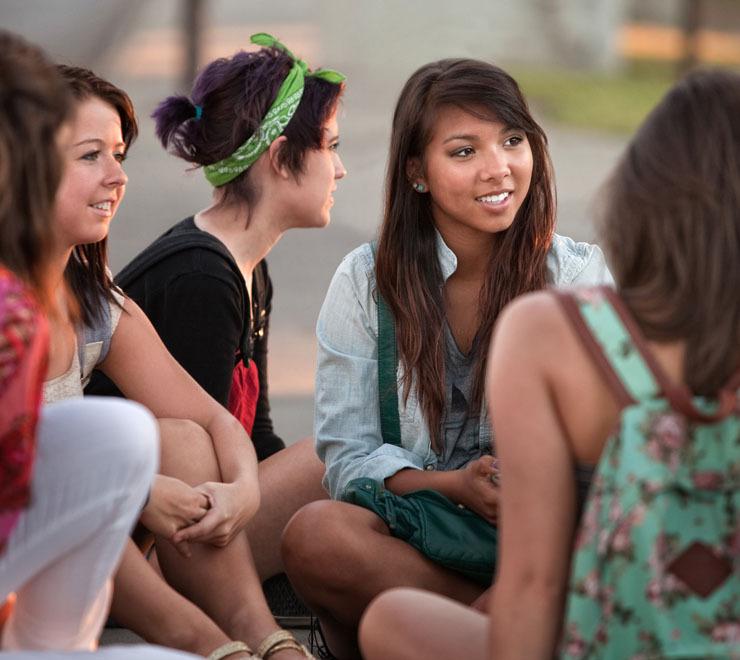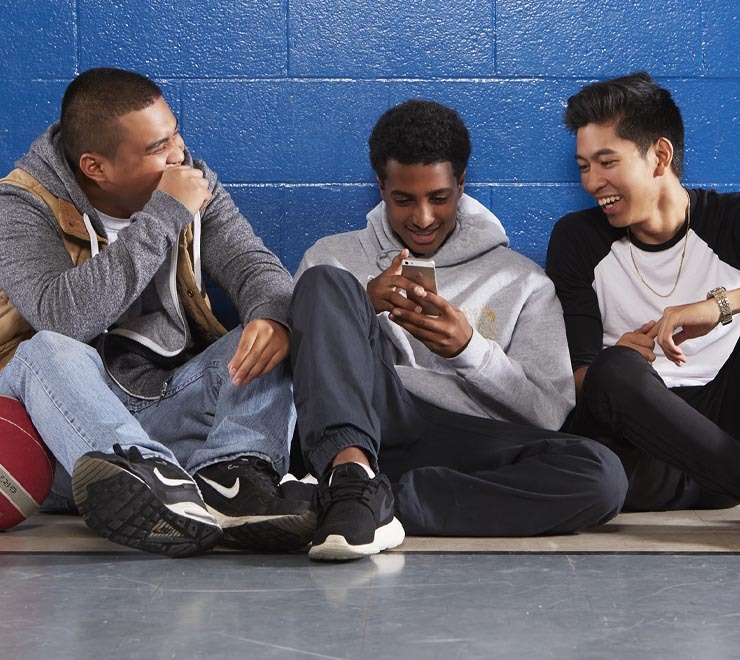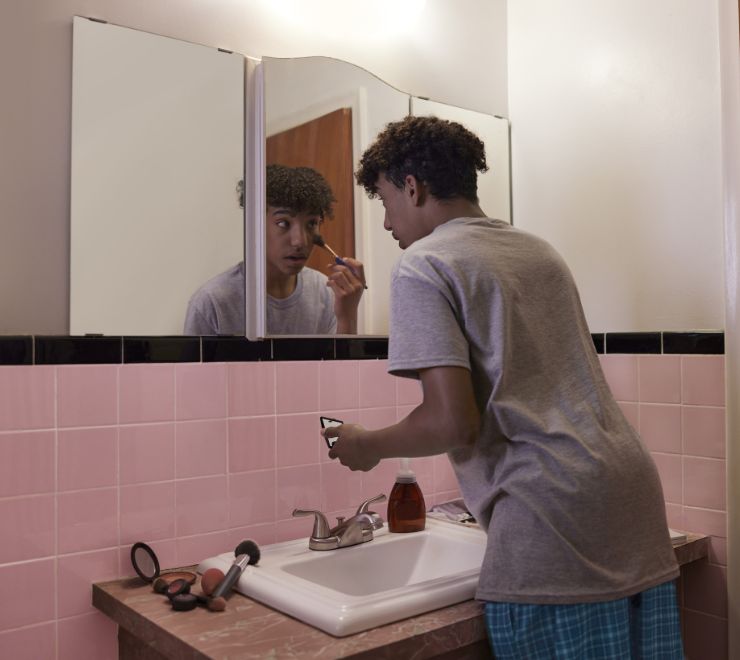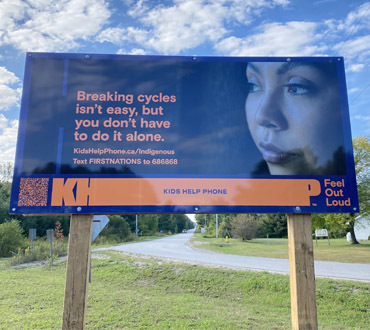Puberty is a time of major change for all young people, both physically and emotionally. People assigned male at birth may experience new things like a deeper voice, erections and more. It’s good to have an idea about what to expect during puberty.
Throughout this content piece, Kids Help Phone uses the term people assigned male at birth to refer to individuals who are born with certain sex organs, hormones and/or chromosomes. However, it’s important to note that people may have a different gender identity than the sex assigned to them at birth. As well, people may use different words for their body parts than those used in this piece. Kids Help Phone supports everyone in using whatever terms fit best for them.
What do I need to know about the reproductive system?
The reproductive system in people assigned male at birth often includes:
- a prostate gland (a gland that makes some of the fluid found in semen — a thick, white fluid that may contain sperm)
- seminal vesicles (tubes that make some of the fluid found in semen)
- the vas deferens and epididymis (tubes that store and transfer sperm)
- testes (also called testicles or balls, these are two sacs on the outside of the body that produce and store sperm)
- a penis (an external organ that releases semen and urine)
When does puberty start?
Although there’s no way to tell for sure when puberty will begin, it usually starts between age nine and 14 and lasts up to four years. Around this time, you may begin to notice changes to the way you look and feel. This may mean you’re starting puberty. However, it’s important to remember everyone develops at their own pace.
At the start of puberty, part of your brain (the pituitary gland) releases hormones, which tell the testes to start producing another hormone called testosterone. This hormone causes more changes throughout the mind and body.
The first signs of puberty happen gradually and are usually visible. You may:
- develop muscles
- grow taller/broader (also called growth spurts)
- develop a larger larynx (also called an Adam’s apple)
- have a deeper voice (which may lead to the voice “breaking” at first)
- gain weight
- develop larger testes
What else happens during puberty?
During and after puberty, you may also experience the following:
- Hair growth: you may notice more body and facial hair, or that it gets thicker and darker. Hair growth most often happens on the face, under the arms, on the chest, on the legs and around the pubic area.
- Pimples: during puberty, the body may make extra oil, which can clog the skin’s pores. This buildup of oil and bacteria can cause small, pus-filled bumps known as pimples, zits or acne. Pimples commonly appear on the face, back and chest.
- Sweat: during puberty, sweat glands become more active to help control the body’s temperature. You may notice that you’re sweating more than you used to. The sweat your body produces may also mix with bacteria on your skin and give off an odour.
- Sexual arousal: as the body goes through puberty and matures, it becomes ready for possible sexual activity. Around this time, you may start to have sexual thoughts, feel sexual urges and/or experience new sexual sensations. During sexual arousal, the penis swells with blood and becomes erect (hard). Eventually, the penis releases semen during a process called ejaculation. When you ejaculate, you may experience an orgasm — a pleasurable feeling in your body — at the peak of sexual arousal. You may experience sexual arousal at any time, including while you’re asleep. Ejaculating while you’re asleep is known as having a nocturnal emission (also called a wet dream).
- Mood changes: during puberty, the body’s hormones are fluctuating. You may begin to experience more emotional highs and lows. If you notice a big change in your mood, thoughts or actions, it’s important to talk to a friend or a safe adult such as a doctor/nurse, counsellor or social worker.
- Relationship changes: it’s common for relationships to change as you grow up. You may begin to notice shifts in your relationships with family, friends and peers as your mind and body mature. You may also start to feel sexually attracted to other people. Your relationship with yourself (e.g. your body image and self-esteem) may also transform during puberty as you learn more about who you are.
If you have any questions or concerns about puberty, it’s important to talk to a health-care professional or another safe adult.

